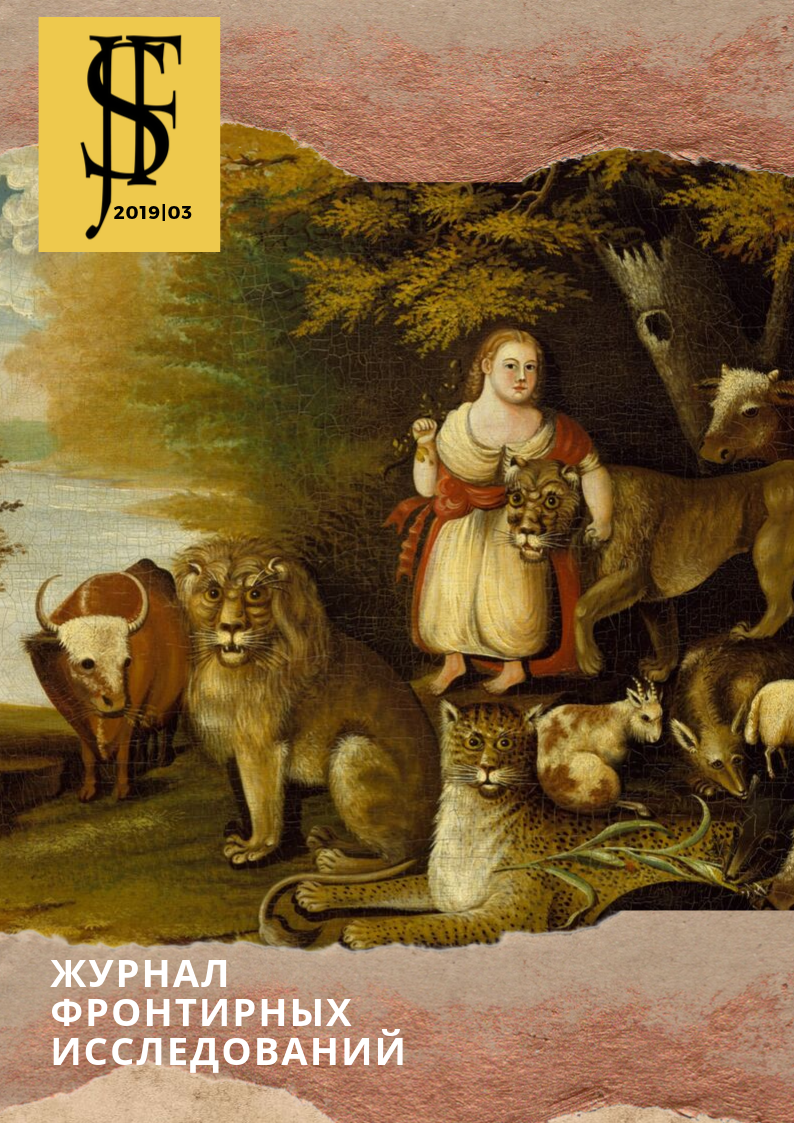Abstract
The article analyzes religious processes in the north of the Russian Empire based on the materials of the well-known religious scholar A.S. Prugavin. In particular, the question of Old Believers as a special category of believers in the European North is being considered. The researcher revealed the role of the Old Believers for a given territory through the formation of their historical memory, interaction with the outside world at the “person-to-person” level and the everyday component of the old believe life. The author bases his analysis based on the works collected and partially published by Prugavin himself (including archival data from the populist personal fund), and also attracts additional archival, journalistic and research materials. As a result, Pruhavin pointed out that the Old Believers played a special role for the European North and made a significant contribution to the development of both the region and the designated society as a whole in the empire.
References
Beloborodova, I. N. (1999). Old Believers Arkhangelsk province: composition, abundance, settlement (mid XIX - early XX centuries). Ural collection History Culture Religion (page 52-67) Ekaterinburg. (in Russian).
GAOO. (n.d.). F. 544. Op. 1. D. 21. (in Russian).
Demoscope Weekly (2019). The first general census of the population of the Russian Empire in 1897. Distribution of the population by religion and region. Retrieved from: http://www.demoscope.ru/weekly/ssp/rus_rel_97.php?reg=0 (in Russian).
Priklonsky, S. A. (1885). Peasant world and parish clergy. Northern Herald, 2, 77-95. (in Russian).
Pruhavin, A. S. (1880). Arkhangelsk County, March 1 (Correspondence "Voices"). Voice, 68, 3. (in Russian).
Pruhavin, A. S. (1881a). The value of sectarianism in the Russian national life. Russian thought, 1, 301-364. (in Russian).
Pruhavin, A. S. (1905a). Monastic prisons in the fight against sectarianism. (To the question of religious tolerance). Moscow: Mediator, For Intelligent Readers Series. (in Russian).
Pruhavin, A. S. (1997). Program for collecting information about the Russian schism or sectarianism. Moscow: Sociology in Russia XIX - early XX. (in Russian).
Pruhavin, A. S. (1887). The Russian Schism - sectarianism: materials for the study of religious and everyday movements of the Russian people. Moscow: Printing house V. V. Isleneva. (in Russian).
Prugavin, A. S. (1905b) The Russian Schism and sectarianism in Russian folk life. Moscow: Typography I. D. Sytin. (in Russian).
Pruhavin, A. S. (1885). Self-destruction. The manifestation of asceticism and fanaticism in the Russian schism (Essays, analogies, parallels). Russian thought, 1, 79-111. (in Russian).
Pruhavin, A. C. (1881b). Solovki prisoners. On the issue of monastic imprisonment. Russian thought, 11, 46–62. (in Russian).
Pruhavin, A.S. (1879). Old Believer monasteries (regarding one particular case). Week, 38, 1127-1131. (in Russian).
Pruhavin, A.S. (1904). Old Believers in the second half of the XIX century. Essays from the recent history of the Russian schism. Moscow: Dep. type of. t-va I. D. Sytin. (in Russian).
Prugavin, A. S. (1898). The poems of a prisoner-slave. Russian starin, 11, 477-480. (in Russian).
RGALI. (n.d.). F. 2167. Op. 1. D. 306. (in Russian).

This work is licensed under a Creative Commons Attribution-NonCommercial-NoDerivatives 4.0 International License.

